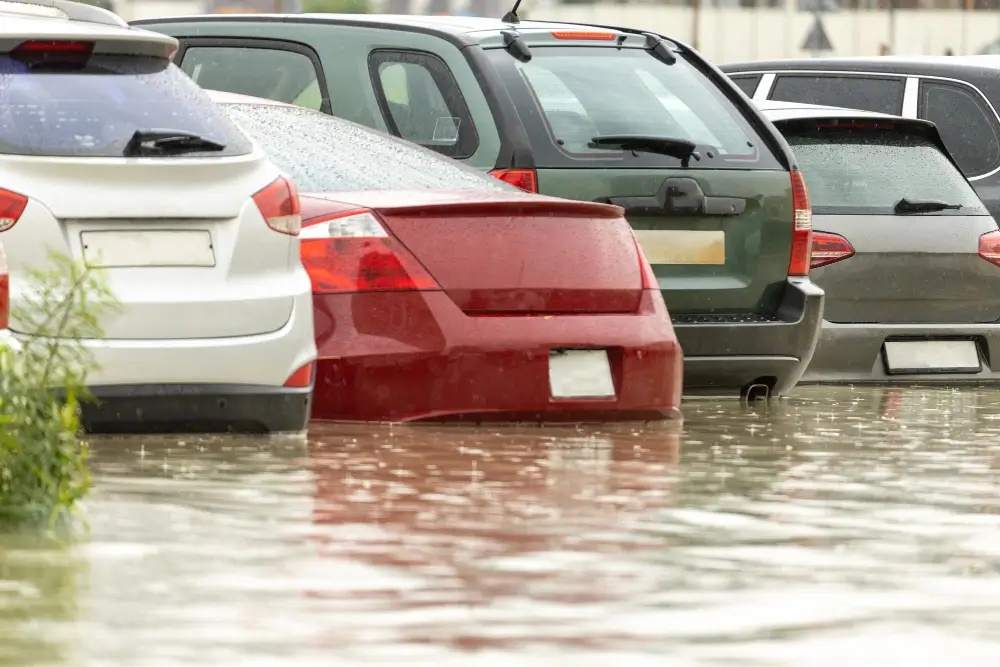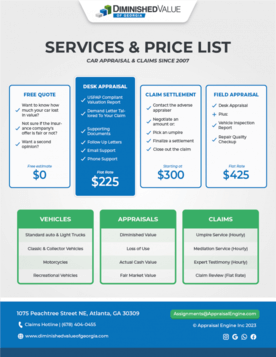One rainy evening, Sarah was driving home from work. The streets were flooded from a heavy downpour that hadn’t let up for hours. As she approached an intersection, the road ahead was covered in water.
She remembered the common advice she’d heard so many times before: “Turn around, don’t drown.” This time, she decided to heed the warning and took a different route home. It was a simple decision, but it could have saved her life.

Why You Should Never Drive Into Floodwaters (PDF)
Understanding the Risks
Driving into floodwaters might seem like just another part of dealing with bad weather, but it’s far riskier than most people think. The National Weather Service reports that more than half of all flood-related drownings involve vehicles. Just 12 inches of moving water can be enough to sweep a car away. That includes larger vehicles, like SUVs, that might seem safe.
Water covering the road can hide many dangers. The road underneath might be damaged or completely washed away. Even if the water looks shallow, it’s not worth the risk.
What’s in the Water?
Floodwaters aren’t just water. They can be mixed with sewage, chemicals, and debris that are harmful to your health. Driving through this mix can damage your car and expose you to serious health risks.
Car Damage and Safety Issues
Cars today have a lot of electrical systems that don’t mix well with water. Water can ruin your engine, electrical system, and even your brakes. Driving into floodwaters puts you at a higher risk of breaking down in the middle of the flood, which can be dangerous.
Insurance Doesn’t Always Cover Flood Damage
Many drivers don’t realize that standard car insurance often doesn’t cover flood damage. This means you could be paying out of pocket for any repairs needed after driving through floodwaters, not to mention the hassle of dealing with insurance claims.
Was your car damaged by a Flood?
If your car was damaged in a flood and you’re dealing with an insurance total loss claim, it’s crucial to ensure you’re getting a fair evaluation. Insurance companies often declare a vehicle a total loss if the repair costs exceed the car’s actual cash value. If you suspect your vehicle has been undervalued, you can contest this with help from an independent agency.
Total Loss Claim Review
Diminished Value of Georgia offers a Total Loss Claim Review—a thorough analysis of your claim, a detailed examination of your vehicle’s value, and an assessment of the fairness of your insurance company’s offer. They provide an alternative report that can be presented to your insurance carrier as evidence to argue for a higher claim value.
By law, insurance carriers are required to handle claims fairly and must consider any written evidence submitted. An appraisal report from DVGA, complete with a detailed vehicle description, comparable vehicle listings, value adjustments, and an official appraisal attestation and signature, is a powerful tool in a total loss claim dispute.
Fill out the form below to get a FREE Claim Review or call (678) 404-0455 and receive the compensation you deserve.
Conclusion
It’s clear why driving into floodwaters is a bad idea. The risks to personal safety and the potential costs far outweigh any reason you might have to try it. Next time it floods, will you remember to turn around instead of risking it?






